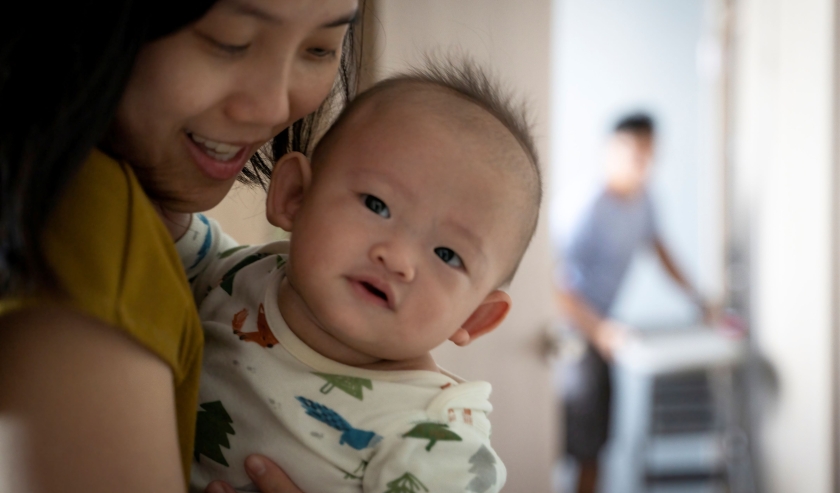Related
-
 Case study 22 Nov 2021
Case study 22 Nov 2021KidSTART evaluation: Giving children from vulnerable families a stronger start in life

A targeted and coordinated program comprising regular home visits by trained professionals has led to significant positive gains in parenting, social support and child outcomes for lower-income families in Singapore. This is the key finding from a rigorous five-year evaluation of the Singapore government-funded KidSTART program, which has now reached close to 10,000 children across the island state.
“We found that at the 12-month mark, parents and caregivers who received home visits were less stressed, had higher confidence in their parenting skills and better social supports, in comparison with similar families who did not receive visits,” says CEI Director for Singapore and Asia, Dr Cheryl Seah.
“By age three, children receiving the home visits scored higher in important areas of child development, including socio-emotional and daily living skills, adaptive behaviour and prosocial skills. Families in the program also demonstrated more positive, high-quality parent-child interactions.”
The evaluation investigated outcomes for the three KidSTART program components – KidSTART Home Visitation, KidSTART Supported Playgroups and KidSTART Enhanced Support to Preschools – and was led by CEI in collaboration with Monash University (Australia) and Research for Impact (Singapore), commissioned by Singapore’s Early Childhood Development Agency (ECDA).
Grounded in strong evidence for the lifelong benefits of early investment in children and families, KidSTART piloted in 2016, to empower lower-income families with skills and knowledge to give their children a good start in life. It brings together the family, community, and preschool to build a strong ecosystem of support for the child.
“There are known developmental gaps for children from disadvantaged family contexts. Differences in health and learning opportunities start before birth and continue to compound over time,” Cheryl explains. “With this in mind, ECDA decided to focus on intervening early, building an ‘ecosystem of support’ around a child in their home, community and local preschool centres – and so KidSTART was born.”
“The findings from our randomised controlled trial (RCT) of KidSTART’s Home Visitation component are compelling. Families receiving the home visits outperformed other similar families across all measures, and first-time parents and caregivers benefited even more. The evaluation also highlights likely positive spillover effects, which can influence long-term change in child outcomes and wellbeing.”
On the effect of KidSTART Supported Playgroups, findings were less promising.
“There were no statistically significant improvements in parenting, social support and child outcomes for families involved in KidSTART Supported Playgroups,” Cheryl notes. “But our evaluation found that this is consistent with findings internationally. It seems that parenting strategies learnt in playgroups do not transfer easily to home environments, likely due to limited supportive spaces and resources like educational toys in families’ households. Families may also require flexibility in scheduling and adaptation of strategies, hence a group format may not always meet their needs.”
Evaluation of KidSTART’s centre-based pilot, the Enhanced Support to Preschools (commenced in 2021), focused on assessing implementation, as well as establishing baseline data for longer-term monitoring.
Other key, program-wide findings are that higher risk families may require more support, and that families overall are highly satisfied by their experience of KidSTART.
“We also looked at implementation factors, including what is needed for home-visiting practitioners to fully apply KidSTART’s principles and strategies in their work with families,” says Cheryl. “Beyond the initial training, we’ve now identified the learning and development journey that can best support practitioners and build their capabilities – including strategies such as mentorship, on-the-job training, further training, communities of practice and learning circles.”
“One of the most important views of impact has come from parents themselves. We’ve had parents tell us how the intervention has helped support stronger relationships not only with their child, but between spouses and for all family members.”
Or – as one KidSTART parent put it: “KidSTART taught me how to love myself and my child better.”
The revised KidSTART service model has incorporated insights from the evaluation.
Home Visitation will be the main mode of intervention in the revised KidSTART service model. The Home Visitation component will be expanded, from the antenatal period until a child’s sixth birthday (up from its original scope of birth to three years). The program will be offered to all eligible children nationwide, with the target of 80% of eligible children from every birth cohort (starting from 2023) coming onboard. KidSTART Supported Playgroups will be discontinued, and community events will be leveraged instead to promote social connectedness.
Through the revised KidSTART service model, families will receive antenatal education and advice, expert in-home support for their child until age six, along with educational learning resources and other items that can support better health and nutrition, as well as invitations to KidSTART events and other activities.
“It is exciting to bring together an international evaluation team to conduct this robust, rigorous, long-term analysis into what is working in the KidSTART program, and how it is making impact for children and their families,” says Cheryl.
Find out more about KidSTART HERE
Read a Straits Times article on the evaluation results HERE
